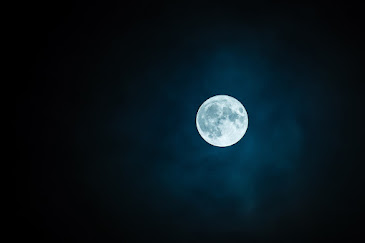TO THE MOON AND BACK! BLOGCHATTER HALF MARATHON 2023
Pixabay
At the moment, we in India are over the moon with the success of Chandrayaan 3 and Aditya L1. Our scientists have proved that they are amongst the elite in the world, repeatedly.
English is a quaint language. There are so many phrases and idioms connected with the moon that add flavour to the language we use. Here are a few of the commonest ones.
When we are ecstatic about something, we describe it as
being ‘over the moon’ which reminds us of the old nursery rhyme, ‘Hey diddle
diddle, the cat and the fiddle, the cow jumped over the moon…’. Of course, this
has nothing to do with the present meaning of the phrase, which means being ‘extremely
happy’. “When I heard that I had come first in class, I was over the moon.”
Earlier, most fairy tales started with the phrase ‘Once
upon the time...’. A synonym for this phrase is ‘many moons ago…’, the word ‘moons’
referring to ‘months’. For example, if I were to say, “I last drove a car many
moons ago” (which is the truth!), it would mean that my driving skills are
rusty.
‘Promise the moon’ is making an extravagant promise. For
example, if someone says, “I promise you the moon if you enter into a
partnership in my business” it could be profitable, especially if he has a good
head for business.
If your parents ask you to go and ‘shoot for the moon’
just before you begin your examination, it only means that they want you to aim
high and do the almost impossible. The premise is that the moon is a target
that is difficult to reach, and another phrase close enough is to ‘reach
for the moon’. As the proverb goes, “Reach for the moon. You will at least get
to the top of the staircase.”
A year normally consists of twelve moons, one a month.
Sometimes a month sees two full moons, once in three years, which is a blue moon.
Since this is a rare occurrence, the phrase ‘once in a blue moon’ also refers to
an event which happens rarely. For example, “Since I live in a crowded city, I
breathe fresh air only once in a blue moon when I go back to my village.”
How often have we heard of people going underground because
they owe money to others and cannot pay their debts? Thus, ‘a moonlight flit’
is an abrupt and unexpected departure, probably in the wee hours of the night.
One example of this would be, “The ruined millionaire did a moonlight flit
because he did not want to face the music the next morning.”
Two intriguing phrases that mean the same are ‘howl at
the moon’ or ‘bark at the moon’. The meaning of both is to make a plea that is
unlikely to change a situation, a fruitless effort. One could say “Telling Eva
to keep a clean house is like barking at the moon because she has her finger in
too many pies.”
How many of us have seen the ‘man in the moon’? Not many,
I suppose, since the phrase means something that has no substance or is of no
value. When we come across a person who knows little, we often think, “Well, he
knows no more about the subject than the man on the moon.”
The word ‘honeymoon’ refers to the short period after
marriage when a couple takes off to some place far from the madding crowd so that
they can get to know each other. However, when the word was first in use, it
had a darker connotation. ‘Honey’ referred to the sweetness of wedlock, and ‘moon’
to a short period of time. Taken together, the word meant that ‘honeymoon
referred to the short period of time in a couple’s life when all was sweetness
and love. The word ‘short’ implied that this idyllic period would not last long
due to arguments or incompatibility. For example, “John and Lydia had a short-lived
honeymoon after their parents refused to sponsor their trip to Egypt.”
Romantic novels have a special way to define love. “I
love you to the moon and back.” This could be said by people in love through
letters, epistles, poems or even autograph books (I wonder if those exist anymore.)
The line means to love someone deeply. We could imagine Mr. Darcy saying it to
Elizabeth, or Heathcliff to Catherine.
“The moon is made of green cheese” - so said John Heywood in 1546.This usage is used when something seems unreal or unlikely. “Do you really believe that So and So is a great actor? Right, and the moon is made of green cheese.” Another interesting alternative to this usage is ‘when pigs fly’.
Isn’t English a simply marvellous language?







Comments
Post a Comment